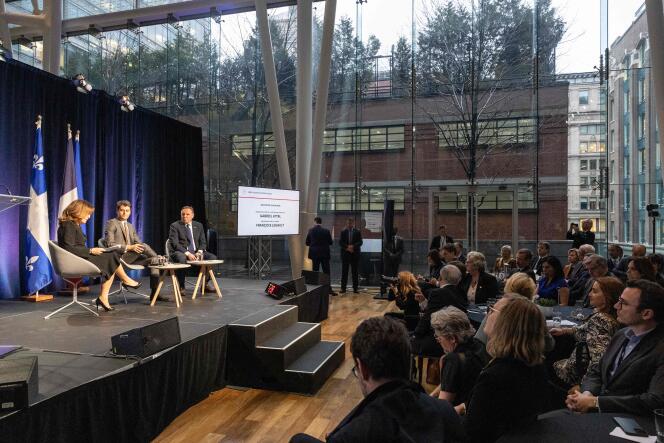

LETTER FROM MONTREAL

Early in the morning, in the working-class neighborhood of Hochelaga-Maisonneuve in Montreal, the kitchen comes alive. The "chop chop" of knives chopping up vegetables punctuates the conversations of the 20 or so people busy at the stove. Some are mothers who have got together to cook "as a family" to reduce the cost of the meals they will be taking home, others are trainees. Former homeless people, unemployed single mothers, autistic teenagers and destitute new immigrants – all far removed from the job market – are taking part in a six-month training program at the Cuisine Collective, which will help them find jobs as cooks or waiters.
At the helm of this social economy enterprise for the past 10 years is a Frenchman, Benoist de Peyrelongue, 54. Settled in Montreal since 2009, he arrived with a professional cook's diploma and experience in the restaurant and hotel business. Here, he has reinvented his professional life. "In France, even if I already had a social inclination to do something else, they would have asked me to go back to school and get at least an MBA in management," joked the man who now heads a team of some 40 employees and manages an annual budget of 4.5 million Canadian dollars (€3 million). "In Quebec, they trust you, whatever your previous career path. You're only limited by yourself," he said.
On January 10, the French Consulate in Montreal announced that "the 200,000 mark had just been passed": a record that underlines the exceptional appeal of the Quebec metropolis. This French community, the largest outside Europe, contributes to the city's economic dynamism. French companies such as Alstom, Air Liquide, BNP and Accuracy attract expatriates eager to live the "Quebec experience."
The bakeries and patisseries run by the "French of France," as they're known here, have long permeated Montreal's neighborhoods with the smell of "real" bread and pastries. But French workers are now present in all sectors of activity, and most of them are discovering an "entrepreneurial spirit" that is markedly different from that of France.
Adrien Peyrache, 42, followed the typical career path of a young neuroscience researcher. He attended engineering school in France, completed a postdoctorate in New York, and in 2016, he applied to the prestigious English-speaking McGill University in Montreal. No sooner had he been hired than he was awarded $1 million (€700,000) to conduct his research on neural circuits in his 15-person-strong laboratory. Now, it's up to him to learn how to raise the funds needed to develop his projects.
You have 60.58% of this article left to read. The rest is for subscribers only.
